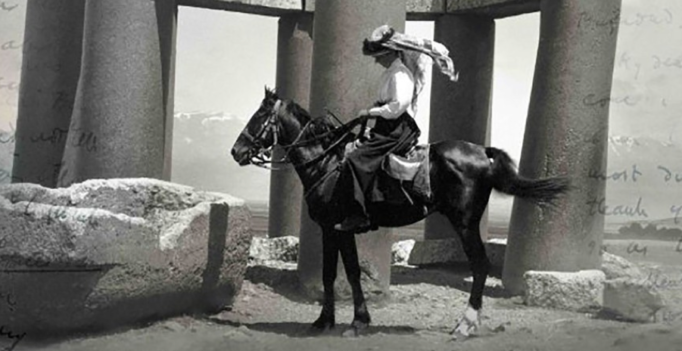Tilda Swinton (Doctor Strange, The Grand Budapest Hotel, Okja) narrates the letters of Gertrude Bell in this documentary that traces Bell’s life from childhood to death through her personal correspondence.
Letters from Baghdad makes good use of its compelling source material. In her time, Gertrude Bell was one of the most influential women in the British Empire and helped to shape the future of the Middle East, particularly Iraq, after the second World War. Featuring vintage film footage as well as photographs taken by Bell, herself an avid photographer, the film follows Bell through her time as one of the first female students at Oxford, her years spend mountaineering in Switzerland, and her travels through the Middle East.
One of the most powerful aspects of Letters from Baghdad is its insistence on connecting the events and power struggles that took place in Iraq and surrounding regions during Bell’s time with the present-day instability in the region. The film frequently insists that problems encountered by Iraq in the modern era have their roots in British imperialism and the demand for Middle Eastern oil that began during the first World War.
Swinton does an excellent job bringing Bell’s letters to life. A writer before she was a government official, Bell had an undeniable way with words. Her poetic descriptions of the Middle East and her experiences with the people that call it home are nothing short of beautiful. Bell’s letters to her father, which tend to contain her most personal impressions of the environment around her, are particularly moving.
Though there is much to like about Letters from Baghdad, it is not without fault. The pacing is, at times, slow and the “interviewing” segments with actors playing historical figures who knew Bell at different points throughout her life, while useful for giving a different perspective on her character, feel somewhat forced.
The most glaring flaw with Letters from Baghdad, however, is its omission of the perspective of the Iraqi people themselves on Bell and the role she had in shaping their country. The inclusion of a Middle Eastern view would have added another level of depth to the portrait of Bell as an individual and historical figure.
Bell’s story is told through a lens that is an undeniably Eurocentric and while I certainly enjoyed the film when I first saw it, its failure to take risks ultimately renders it less-than-memorable.
**********
Do You Tweet? Follow:
Shannon Page: @ShannonEvePage





Be the first to comment